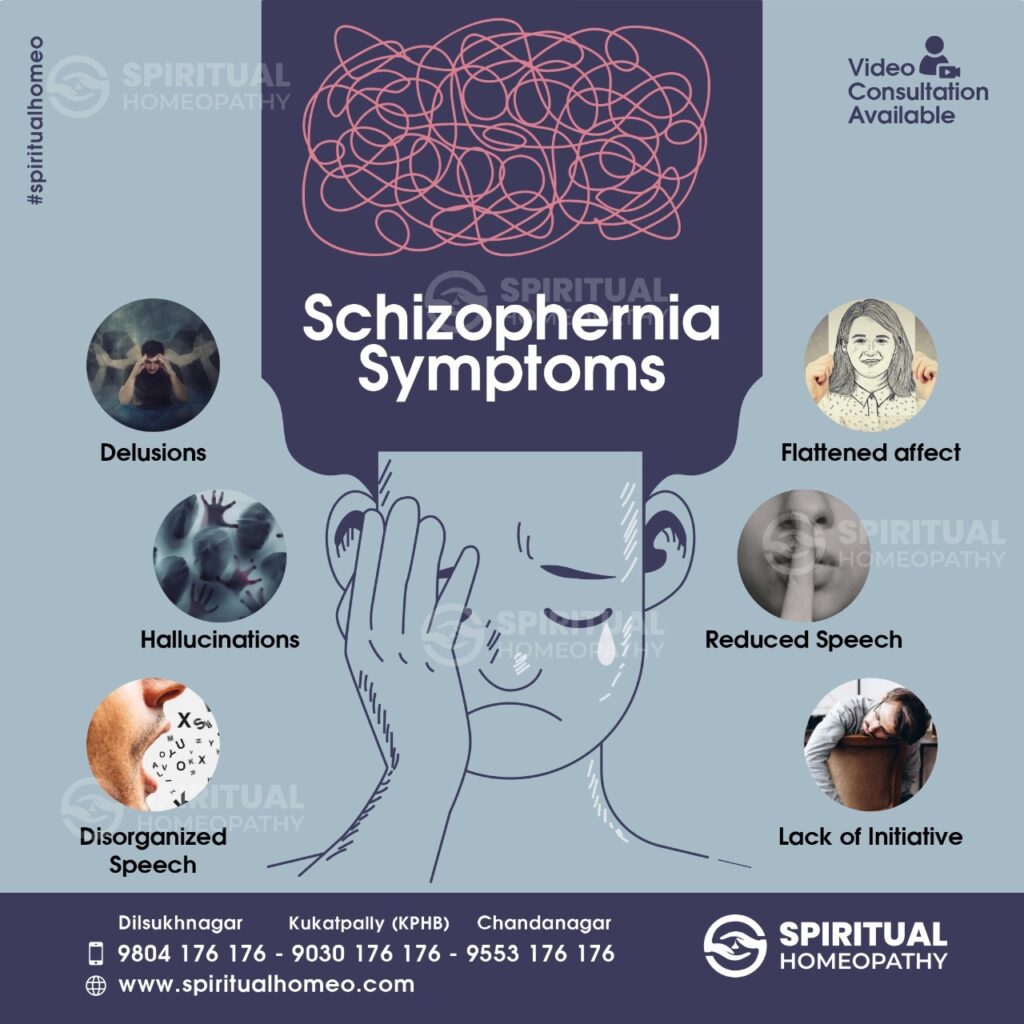Schizophrenia is a chronic and severe mental disorder that affects how a person thinks, feels, and behaves. It is a complex and multifaceted condition that can have a significant impact on an individual’s life and the lives of those around them. Here are some key points to understand about schizophrenia:
-
Symptoms: Schizophrenia is characterized by a range of symptoms, which can be categorized into three main groups:
- Positive Symptoms: These involve an excess or distortion of normal functioning and can include hallucinations (perceiving things that are not real), delusions (false beliefs that are firmly held despite evidence to the contrary), disorganized thinking, and disorganized or abnormal motor behavior.
- Negative Symptoms: These involve a decrease or loss of normal functioning and can include flat affect (reduced emotional expression), social withdrawal, anhedonia (loss of interest in previously enjoyable activities), and alogia (reduced speech output).
- Cognitive Symptoms: These affect thinking processes and can lead to difficulties with attention, memory, and problem-solving.
-
Onset: Schizophrenia typically emerges in late adolescence or early adulthood, though it can develop at any age. Early intervention is crucial for better outcomes.
-
Causes: The exact cause of schizophrenia is not fully understood but is believed to involve a combination of genetic, environmental, and neurobiological factors. There is no single cause of the disorder.
-
Treatment: Schizophrenia is a treatable condition, and most individuals with schizophrenia benefit from a combination of treatments. These may include specific homeopathic medications to manage symptoms, psychotherapy (such as cognitive-behavioral therapy), psychosocial interventions (like skills training and family therapy), and support services.
-
Relapse Prevention: Continuation of treatment and support is often necessary to prevent relapses. Many individuals with schizophrenia require ongoing medication and therapy to maintain stability.
-
Impact: Schizophrenia can have a profound impact on a person’s life, affecting their ability to work, maintain relationships, and engage in everyday activities. However, with appropriate treatment and support, many individuals with schizophrenia can lead fulfilling lives.
-
Stigma: People with schizophrenia often face social stigma and discrimination due to misunderstandings about the disorder. Education and awareness can help reduce stigma and promote understanding.
-
Individual Variation: It’s important to note that schizophrenia is a heterogeneous disorder, meaning it can vary widely from person to person in terms of symptoms, severity, and response to treatment. Not everyone with schizophrenia experiences the same symptoms or follows the same course of the illness.
Family support, access to mental healthcare, and a comprehensive homeopathic treatment plan are crucial for individuals living with schizophrenia. Early intervention and a holistic approach to treatment can significantly improve the prognosis and quality of life for those affected by this condition. If you or someone you know is experiencing symptoms of schizophrenia, it is essential to seek professional help promptly.




